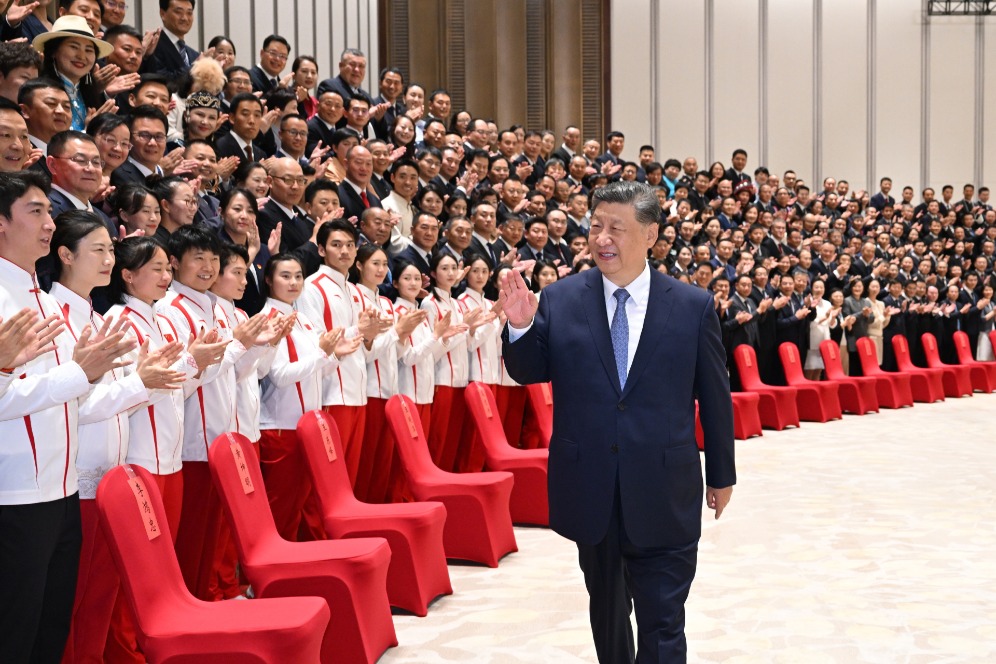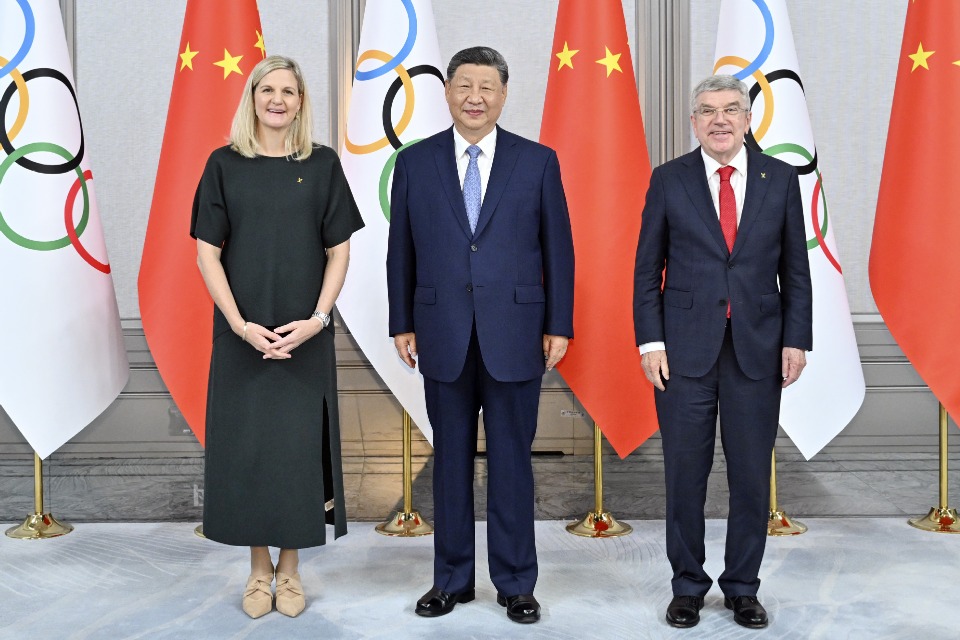Let peaceful coexistence be guiding force of world order


The debate on the architecture of the international order should be shifted to the responsibilities vested in those states that are ascending to the highest power status: the global powers. Indeed, global powers are defined not only by the nature and reach of their interests, but also by their attitude toward global cooperation based on principles and common responsibilities arising from their deeds.
China is an emerging global power that has been pursuing its goal of building a global community with a shared future with restraint, responsibility and regard for common good.
The then premier Zhou Enlai put forward the Five Principles of Peaceful Coexistence during a diplomatic engagement with the Indian government in 1953. A year later, in 1954, China issued two joint statements respectively with India and Myanmar, confirming their commitment to these Five Principles in conducting their mutual relations and their respective relations with other countries in Asia and the world.
In 1955, during the Bandung Conference, a set of 10 principles to promote peace and cooperation were adopted, including the original five of 1953. And in 1970, the United Nations General Assembly adopted Resolution 2625, which included the content of the Five Principles of Peaceful Coexistence, thus making them widely acceptable to the international community.
The Five Principles of Peaceful Coexistence and their global evolution have had a huge impact on the development of diplomatic relations between China and a number of countries, namely those new sovereign states that gained independence from colonial rule in the 1940s, 1950s and 1960s. The five principles are still regarded as a pillar of diplomatic relations between China and the nine Portuguese-speaking countries. Yet new connotations need to be incorporated in the context of contemporary international relations to make the principles more effective.
Six decades later, capitalizing on the global significance of the Five Principles of Peaceful Coexistence, countries have been pursuing development, unity, coexistence and win-win cooperation. In this vein, win-win cooperation is preferred to the zero-sum games, and represents a commitment to collective action with collective gains and shared values and principles.
The concept of a global community with a shared future for mankind promoted by President Xi Jinping is becoming a hallmark of China, as it reflects the extended common interests of all societies and sets a vision for all major areas associated with global governance to follow. "To meet our common challenges and create a better future for all, we look to culture and civilization to play their role, which is as important as the role of economy, science and technology".
China has been making efforts to build communities with a shared future in multiple forms and domains, and at multiple levels.
These communities embrace and embody the spirit of the Five Principles of Peaceful Coexistence and the extended vision of a community with a shared future for mankind, as shown in their practices, participation in global initiatives, and trade and cultural exchanges. Bearing in mind Macao's role as a platform that can help bring China and the Portuguese-speaking countries closer, it is possible to build a new community with a shared future with all the nine Portuguese-speaking countries.
The creation of such a platform will not only be a practical inspiration for building a closer and stronger relationship between China and the Portuguese-speaking countries, but more importantly will send a message to the rest of the world that it is possible to establish informal "spatial oasis" of principled sovereign relations even when there is no contiguity of land borders, therefore fostering a new type of international relations.
The author is an associate professor at the University of Macau. The views don't necessarily reflect those of China Daily.
If you have a specific expertise, or would like to share your thought about our stories, then send us your writings at opinion@chinadaily.com.cn, and comment@chinadaily.com.cn.


































